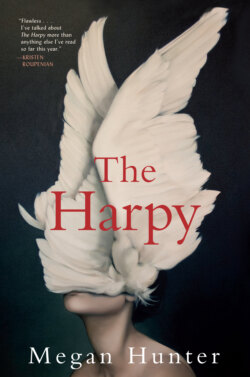Читать книгу The Harpy - Megan Hunter - Страница 20
На сайте Литреса книга снята с продажи.
Оглавление11
After they left, I felt my mind fall, its scattered attentions sinking into the watchfulness of empty rooms. It was in this house that I first started working from home, as in living from home, relocating my entire existence to these rented walls. I had lived in this town for most of my life – only leaving to go to university in its similarly privileged twin – and had never managed to own a piece of it. But here, in this house, I belonged, if only for a fixed term. Wasn’t life temporary, anyway, I asked myself; wasn’t permanence a fantasy? But I couldn’t help but want it: a mirage of safety, the pretence that four walls could keep your life, could hold you present on the earth.
We were, in our earlier years, cavalier about owning a house, or too poor, or too afraid – depending on which story we told – until it was no longer possible. Jake’s career progression had been modest, mine had been in reverse, and meanwhile the prices in our area had risen quickly, silently, like mould along the inside of a neglected jar. The only people who could buy here now were bankers, corporate lawyers, high-level employees of multinational pharmaceutical companies, people whose values seemed somehow at odds with their aesthetics, their Edwardian stained glass, wooden bookshelves filled with books from their days at university.
In these houses, most of the women stayed at home; their husbands were busy enough that they wanted a housekeeper, a nanny, a constant, hovering presence. The woman – the wife – could be all of these things, and she could keep her hand in, she could join the PTA.
I don’t know why I thought I was any different; I was surely the same, with less money. Today, as on every other work day, I was writing copy: a manual for an industrial gluing device. When I was a teenager, I wanted to be a writer, imagined I would write something more meaningful than the sentence I had perfected today: To avoid accidents lay the cables so that they will not cause any risk of stumbling. But perhaps I could never have written anything as useful as this, anything that would prevent a death.
Pre-children, I found work at a university press, still within touching distance of intellectual life, of the PhD I had once abandoned. I moved between lines of dense, taut prose, seizing mistakes, making it perfect. I even stayed there when I had Paddy, submitting cringing apologies for every illness he had, every forced day off. I was surrounded by male colleagues working late, picking up speed, their sweat permeating the small office. Ambition was here, somewhere, I knew. But when I went freelance – after Ted was born, to be more available for the children – I was hired by whoever would have me: hotel brochures, private school prospectuses, company training materials. I told myself that I was seeing the world, that I was writing the world. Maybe I was.
But today I couldn’t concentrate. I walked in and out of rooms without purpose, looking out of windows, trying to find something to see. I watched a mother crossing the road with her children, all colour drawn from her face into the street around her, the houses, her children’s wide faces and bright clothes. As they moved across the street, she put her body in front, before theirs, the first thing that would be hit.
In the kitchen, I made a cup of tea, tried to drink it before it was cool enough, felt the scorch on the end of my tongue. I couldn’t stop thinking of Vanessa: her quick glances, her self-possession, the way I’d seen her smiling at Jake. Like a son, I used to think. My stomach turned. I closed my eyes, tried to slow my breathing, but all I could see was the shape of Jake in the dark, the quickness of my movement towards him, the spectral outline of his scratch: like a drawn-on mouth, trying to speak.
